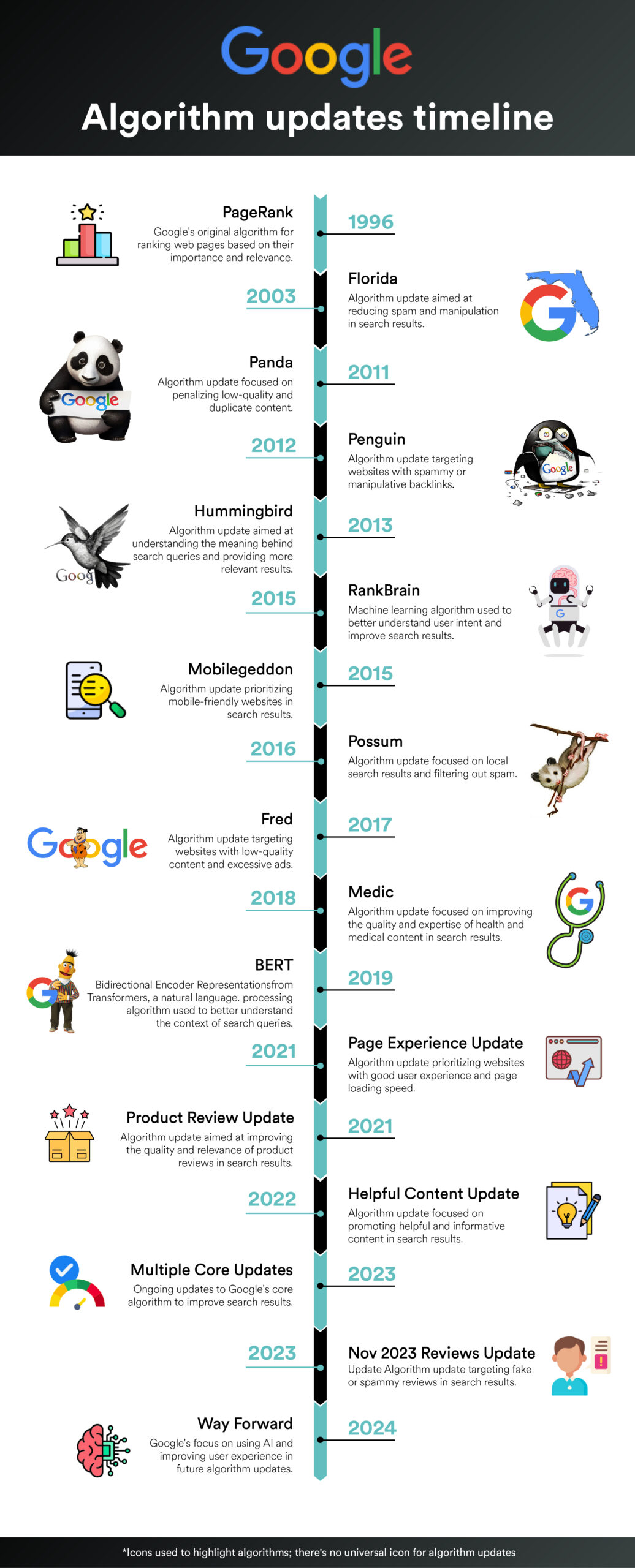
The evolution of SEO: Why you’re being left behind
Summary
SEO is an essential part of any brand’s marketing strategy. But are you keeping up with the times? Axonn’s Head of Production Chris Littley and Senior SEO & Analytics Executive Shreya Mankar explain how SEO has evolved over the years and what you need to do to update your tactics accordingly.
The evolution of SEO: Why you’re being left behind
Search engine optimisation (SEO) is and has been one of the most critical aspects of digital marketing. Indeed, market leader Google handles over three trillion queries each year, while 84 percent of people make at least three searches a day.
Ranking as highly as possible in these results can be critical to the success of any business, and this is where SEO comes in. But search marketing has changed hugely over the last two decades, and if you’re still relying on the same tactics from ten – or even five – years ago, the chances are your website is actually getting penalised, not promoted.
This means what used to be a relatively simple activity is no longer so straightforward. And the worst thing you can do in this area is assume that what has worked in the past will keep working in the future.
Keeping up with Google’s algorithms
Since Google solidified its position as the world’s leading search engine, it’s changed almost beyond recognition. While the classic, uncluttered look of its homepage remains the same, behind the scenes, everything is different. Aside from the introduction of a wide range of extra features – from autocomplete to local results, reviews and featured snippets – the algorithms it uses to determine ranking have become increasingly complex.
A constantly-updating environment
Google is continuously pumping out updates to its search. These range from relatively minor tweaks to how it organises its rankings through to large-scale overhauls like the 2012 Panda and Penguin updates, which forced marketers into a major rethink of how they approach SEO.

If you’re not paying attention to this, you’ll quickly be left behind and start to see your most important pages tumbling down the rankings. With continual developments such as the emergence of generative AI posing new questions, it’s never been more important to be on top of your SEO.
The outdated tactics you need to leave behind
The landscape of SEO has changed considerably over the years. Indeed, many of the tactics that were once considered industry standard have since become ‘black hat’ techniques – underhanded tactics designed to manipulate Google’s results.
No more keyword and link spamming
For example, ten to 15 years ago, the quantity of keywords was everything. If you wanted to rank highly on Google, you had to get multiple keywords into your copy as early as possible. One common maxim was that the first 50 words of your page should contain at least three keyword terms.
It didn’t really matter if these were highly relevant or even if they fitted naturally into the flow of the copy – which they rarely did. It worked, and if you had the right keywords in the right places, you’d be rewarded with strong search engine results page SERP rankings.
These days, things have changed greatly and if you’re still relying on high-volume keywording as your primary SEO technique, you’re highly likely to actually end up penalised by Google and drop down the rankings.
Elsewhere, the use of backlinks is another once-solid technique that is now discouraged by Google. In the past, firms could boost their ranking by spamming links to their content across the web, such as in comment sections and forums, regardless of the relevancy to the topic. Again, this is a tactic Google has clamped down on and will be more of a hindrance than a help.
A continuing evolution
Even newer techniques are constantly being reviewed and assessed by Google, with alterations made accordingly. For instance, one of its recent updates greatly down ranked much AI-generated content. Many firms may have seen generative AI like ChatGPT as an easy way to create large quantities of content and get a boost. However, the problem with much of this is that it doesn’t have the quality Google looks for so, like any other poorly-optimised content, it will be treated accordingly.
The jury’s still out on what the future will hold for this type of content, but it’s clear that bad AI content will continue to be penalised, so for now it’s not an SEO tactic that can be relied upon. Only time will tell whether this changes if and when AI improves.
A people-focused approach to SEO
In years gone by, domain authority was primarily based on how much content and how many keywords you had on your site. It didn’t matter what your content was actually about or how relevant it was. With the right keywords it would rank well. But not today.
“If there’s one piece of advice I could give about delivering strong SEO, it’s know your audience. There’s a wealth of data available today to pin your SEO against, but ultimately, you need to write for people and answer the questions they’re looking for that relate to you.”
– Chris Littley
Quality over quantity
One key reason these techniques no longer work is due to a shift in emphasis from Google to focus on quality over quantity, with a greater priority placed on user experience. This is exemplified by the company’s E-A-T principle.
This stands for Expertise, Authoritativeness and Trustworthiness. This is a subjective measure that human reviewers – known as Quality Raters – use to rate how good a website is. This data is then used as part of the site’s machine learning to train its algorithms on what quality content looks like.
In 2022, the search giant added to this with an extra E – experience – which also aims to reward content that can demonstrate the brand knows what it’s talking about.

The changing role of keywords
As for keywords? They’re still important, but they have to be approached far more strategically. In the past, agencies would frequently work from a list of keywords that clients wanted to rank for, often based more on what they believed their customers would be searching for rather than any specific insight.
This has evolved hugely. There’s now much more research that goes into identifying strategy and keywords before any copy gets written. Marketers need to understand what their brand is really about, who their target audiences actually are and what their competitors are doing to attract them. This all forms part of the research stage to deliver far more targeted, relevant terms and keyword clusters to focus on in the content.
Content itself is no longer about stuffing in keywords. As well as improving relevancy, understanding the intent of searches also matters. So, for example, if customers are looking for more information on a topic, but you’ve produced a very commercial, selling-focused page for a keyword, you won’t rank well.
What you need to be doing to keep up with the evolving SEO landscape
Look at Google today and you’ll notice organic results often start much further down the page than they used to. As well as the paid ads at the top, SERPs now include featured snippets and related questions that Google tries to answer without users needing to navigate through to the website. This means a new approach to SEO is needed if you want to reach the most visible positions.
As such, quality matters more than ever. If you’re the best at answering common queries, you’ll appear strongly in Google’s results. Of course to do this, first you need to understand what these queries are, so a good SEO strategy must start with strong audience and competitor research. Only then can you invest in really educational, informative content that will stand out to Google’s algorithms and deliver the best results in the years to come.
It’s not all about the content either. You have to be investing in how the copy is displayed on your site. For instance, what’s the ratio of text to images? Breaking up long text with photography, diagrams or other visual elements won’t just make it easier for people to read – it’ll give your rankings a boost.
Our key tips for keeping up with evolving SEO demands
“SEO is no longer just about keywords, it’s about delivering real value to users. In the ever-evolving digital landscape, only those who adapt will stay ahead.”
– Shreya Mankar
Here’s what to do if you want to stay ahead:
- Focus on more relevant, longer-form content
- Tailor your copy to answer questions and appear in featured snippets
- Write for people and aim to address common queries
- Pay attention to the visual appearance of the page and supporting assets, like images and video
- Don’t forget technical SEO – titles, metadata, tagging and more all affect your rankings
- Take a holistic approach – including keyword research, copywriting, visual media and analytics
Getting SEO right is as important as it ever was – but it’s also harder than it’s ever been. If you’re unsure about whether your strategy is still up to the task, it can pay to enlist the help of a specialist partner like Axonn who can help guide you through this increasingly complex environment.
